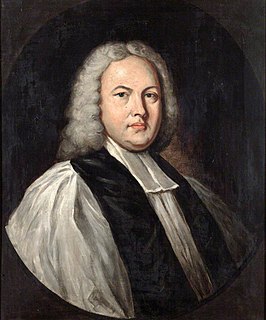A Quote by Letitia Elizabeth Landon
Strange mystery of our nature, that those in whom genius develops itself in imagination, thus taking its most ethereal form, should yet be the most dependent on the opinions of others!
Related Quotes
Most of our difficulties, our hopes, and our worries are empty fantasies. Nothing has ever existed except this moment. That's all there is. That's all we are. Yet most human beings spend 50 to 90 percent or more of their time in their imagination, living in fantasy. We think about what has happened to us, what might have happened, how we feel about it, how we should be different, how others should be different, how it's all a shame, and on and on; it's all fantasy, all imagination. Memory is imagination. Every memory that we stick to devastates our life.
We may seem the weakest and most insignificant of all the Realms, but our strength comes in other ways. We have what no other race has: imagination. Any one of us, even the lowliest, can create worlds within ourselves; we can people them with the most extraordinary creatures, the most amazing inventions, the most incredible things. We can live in those worlds ourselves, if we choose; and in our own worlds, we can be as we want to be. Imagination is as close as we will ever be to godhead, Poison, for in imagination, we can create wonders.
No one suffers so much as he [the genius] with the people, and, therefore, for the people, with whom he lives. For, in a certain sense, it is certainly only "by suffering" that a man knows. If compassion is not itself clear, abstractly conceivable or visibly symbolic knowledge, it is, at any rate, the strongest impulse for the acquisition of knowledge. It is only by suffering that the genius understands men. And the genius suffers most because he suffers with and in each and all; but he suffers most through his understanding. . . .
Has nature connected itself together by no bond, allowed itself to be thus crippled, and split into the divine and human elements? Well! there are certain divine powers of a middle nature, through whom our aspirations are conveyed to the gods, and theirs to us. A celestial ladder, a ladder from heaven to earth.
The being who, for most men, is the source of the most lively, and even, be it said, to the shame of philosophical delights, the most lasting joys; the being towards or for whom all their efforts tend for whom and by whom fortunes are made and lost; for whom, but especially by whom, artists and poets compose their most delicate jewels; from whom flow the most enervating pleasures and the most enriching sufferings - woman, in a word, is not, for the artist in general... only the female of the human species. She is rather a divinity, a star.
Liberal education, which consists in the constant intercourse with the greatest minds, is a training in the highest form of modesty. ... It is at the same time a training in boldness. ... It demands from us the boldness implied in the resolve to regard the accepted views as mere opinions, or to regard the average opinions as extreme opinions which are at least as likely to be wrong as the most strange or least popular opinions
Conventional opinions fit so comfortably into the dominant paradigm as to be seen not as opinions but as statements of fact, as 'the nature of things.' The very efficacy of opinion manipulation rests on the fact that we do not know we are being manipulated. The most insidious forms of oppression are those that so insinuate themselves into our communication universe and the recesses of our minds that we do not even realize they are acting upon us.
It was not in my nature to be an assertive person. I was used to looking to others for guidance, for influence, sometimes for the most basic cues of life. And yet writing stories is one of the most assertive things a person can do. Fiction is an act of willfulness, a deliberate effort to reconceive, to rearrange, to reconstitute nothing short of reality itself. Even among the most reluctant and doubtful of writers, this willfulness must emerge. Being a writer means taking the leap from listening to saying, "Listen to me."
The most spiritual men, as the strongest, find their happiness where others would find their destruction: in the labyrinth, in hardness against themselves and others, in experiments. Their joy is self-conquest: asceticism becomes in them nature, need, and instinct. Difficult tasks are a privilege to them; to play with burdens that crush others, a recreation. Knowledge-a form of asceticism. They are the most venerable kind of man: that does not preclude their being the most cheerful and the kindliest.
Of all literary exercitations, whether designed for the use or entertainment of the world, there are none of so much importance, or so immediately our concern, as those which let us into the knowledge of our own nature. Others may exercise the understanding or amuse the imagination; but these only can improve the heart and form the human mind to wisdom.
Most open letters undoubtedly come from a good place, rising out of genuine outrage or concern or care. There is, admittedly, also a smugness to most open letters: a sense that we, as the writers of such letters, know better than those to whom the letters are addressed. We will impart our opinions to you, with or without your consent.







































